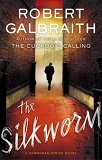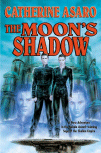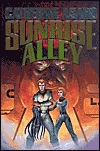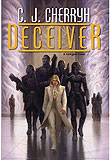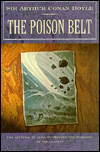
Stranger in a Strange Land, by Robert A. Heinlein
Book Review by Paul Weiss
Valentine Michael Smith is genetically a human. But he was born on Mars and he is now the only survivor of the first manned mission to Mars. When the second mission to Mars rescues him and brings him back to earth, they discover that is 100% Martian by culture, language, upbringing, education and understanding. They even discover that he has some exceptionally potent psychic abilities that, by human experience, are all but supernatural. Never having heard any human language and never having met a woman, he is a true "tabula rasa" when it comes to sex and sexuality, war and fighting, business, money and economics, religion and, indeed, all aspects of human culture and the cultural implications that are inherent in any of earth's many languages.
As if it wasn't enough that his arrival on earth caused a global sensation, the US government was aghast to come to the realization that a piece of earth-side legislation known as the Larkin Decision had the unforeseen implication that Valentine Michael Smith was not only the owner of Mars but also its sovereign. He was also the sole inheritor of the combined wealth of the entire crew of the first mission and, as a result, (despite having no knowledge of what money even meant) was now wealthy beyond imagining.
Events which transpired at Bethesda Naval Station, where Smith was housed after he first arrived on earth, conspired to place him under the watchful eyes of Gillian Boardman, a nurse at the hospital, Ben Caxton, a journalist, and Jubal Harshaw, an aging grumpy author with some definite ideas as to the rights and wrongs of the world. The novel, as you might imagine with this introduction, relates Michael Valentine Smith's journey through earth's culture, his reactions, his assimilation of the ideas and language of the earth and, ultimately, his proactive responses to what he has learned.
In the time of Timothy Leary, Haight-Ashbury, hippie culture, free love, flower children, "drop in, tune out", student protests against the Vietnam War, communal living and so on, it is little wonder that Stranger in a Strange Land, winner of the 1962 Hugo Award, became a much-loved cult classic. But, sadly, reading it almost 40 years later is to discover that Jubal Harshaw, one of the primary characters, is simply Heinlein's mouthpiece standing on a soapbox loudly spouting endless (and frankly outdated, dreary and boring) diatribes and opinions on organized religion, cults and churches (which, in Heinlein's mind, appear to be virtually indistinguishable one from the other), culture, language, imperialism, and, of course, sex and sexuality.
Certainly, Stranger in a Strange Land can be read with some interest because of its historical relevance to the period but it hasn't aged well at all. Modern readers born after the 60s will almost certainly find it both bizarre and quite tiresome. Even as a Heinlein fan who first read (and enjoyed) it shortly after its initial publication (and like other young people of the day was wont to ask my friends if they "grokked" the story), I found it a great disappointment today.
Recommended only out of academic interest. I found it a tough slog to even finish it today.
Paul Weiss
|
Click here to buy Stranger in a Strange Land, by Robert A. Heinlein on Amazon
|
Stranger in a Strange Land, by Robert A. Heinlein on Amazon

| More Books You Might Like |
